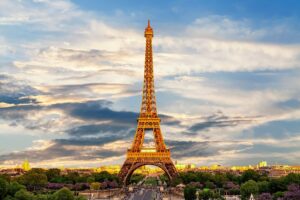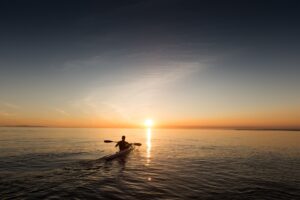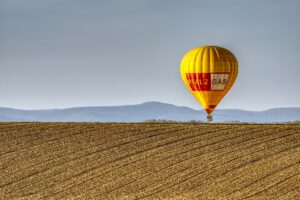RNA 60th Anniversary – How To Write Romance – Research!
17 November 2020
In honour of the RNAs 60th anniversary year, we have put together a special series of blog posts on various aspects of writing romance. These will feature advice and comments from some of our bestselling author members, who all have a wealth of experience and expertise. We hope these posts will be informative and interesting to both new and seasoned writers, but please feel free to add your own tips in the comments section below!
Each month we are highlighting a particular aspect of writing romance, and this month our bestselling authors are focusing on research.
We asked them – how do you do your research? And have you done anything for the sake of research that was particularly enjoyable or horrible?

Photo by The Digital Artist @Pixabay
“I love research,” says Katie Fforde, “and never have enough time for it. The best thing is to do the thing you’re researching but that’s not always possible. Talking to people is always brilliant. I love trying new things and always want to take up the profession I’m researching.” Liz Fielding enjoys it too and at the time of writing (last November) was about to go to Paris, “because that is where and when my present book is set!”
When Sophie Kinsella researched Shopaholic Ties the Knot, she went to New York “and plunged myself in to the world of a New York bride. It was so much fun. I tried on Vera Wang dresses, I tasted cakes, and I looked around the Plaza Hotel. By the end of it I had completely forgotten I was writing a book, and felt as though I really was a bride!”
Milly Johnson researches everything she doesn’t know – “you can really wreck a reader’s involvement by getting something wrong that they know is wrong so I’ve flown birds of prey, gone to Norway to see the Northern Lights, had a crash course in politics, even rung up a priest to see what he would say in the confessional booth to one of his flock who has been poking holes in condoms so his wife would get pregnant. I’ve spoken to genetic scientists and I’ve even been shut up in a police cell. I find research great fun, but the trick is to learn just enough to put in to convince your readers you know what you are talking about and not too much that you bore them stupid and trip yourself up. And it’s tax deductible!”

Photo by The Digital Artist @Pixabay
Barbara Erskine feels she does too much research, but adds “I do so love that part of my writing process. I am a historian at heart. I go to the sites of the action; I go to libraries, museums, mountains, castles. I ask experts for their advice. When I wrote Lady of Hay, I underwent hypnotic regression. When I wrote Whispers in the Sand I went to Egypt and travelled up the Nile (that was particularly enjoyable!). The horrible things tend to come from one’s life experience. I’m not sure I would deliberately set out to do some of the things that happen in my books, but when bad things happen I have usually, if not experienced it myself, then I know someone who has.”
“Google for the easy references and for checking,” is Prue Leith’s method, and then “old cookbooks for writing about meals in the fifties and sixties. I loved the research for The Gardener, a love story set in a historic house and garden which my heroine is restoring. I got to visit many grand houses and poke around their potting sheds and glasshouses, including Prince Charles’s Highgrove. To be honest, the process was so enjoyable I took twice as long as I needed. I could have done the actual research in half an afternoon at the Weston Library (formerly the New Bodleian) where they hold all the estate maps of land belonging to Oxford Colleges. Fascinating.”
Elaine Everest feels “there are times I wished I wrote modern romances set in exotic places. I’m afraid this saga author doesn’t move out of Kent! However, it is the garden of England and so very beautiful, if one wanders off the motorways, that I’m quite happy to visit Margate, Ramsgate, hop fields, National Trust properties – and also get to sample Spam sandwiches and Camp coffee in themed teashops.” And Rosanna Ley uses “the internet, books, films, interviewing people, travelling. Lots of enjoyable things like visiting exciting places, talking to interesting people, and cooking (or tasting) a certain dish.”
If Sheila O’Flanagan is researching a character’s job, she’ll “meet someone who’s done that job and ask them about it and maybe spend a day doing it, if that’s possible. I’ve also gone to various different locations of novels to ensure accuracy. Two of my favourite pieces of research was spending time in the control tower at Dublin airport to learn about air traffic control (for Too Good to be True) and visiting jewellery designers and workshops to study high-end jewellery (for What Happened That Night).
 Dinah Jeffries has been “lucky enough to visit some wonderful countries for my research and stayed in everything from a tea planter’s bungalow beside a lake, to a palace in Rajasthan. Hard life, eh! I’ve drifted up the Irrawaddy river in a leisurely, old-fashioned, colonial style boat, sailed high in a hot air balloon, and explored the back streets of Delhi. The list is endless. When we left Sri Lanka the first time, a cyclone had washed the road away, and so the first lap of our journey home was by canoe in the rain. But the worst and best things happened on my second trip to Sri Lanka where the audience I spoke to at the Galle festival was huge and unbelievably supportive. A few days later, elsewhere in Sri Lanka, I ended up in hospital with gastroenteritis. Awful. Just awful.”
Dinah Jeffries has been “lucky enough to visit some wonderful countries for my research and stayed in everything from a tea planter’s bungalow beside a lake, to a palace in Rajasthan. Hard life, eh! I’ve drifted up the Irrawaddy river in a leisurely, old-fashioned, colonial style boat, sailed high in a hot air balloon, and explored the back streets of Delhi. The list is endless. When we left Sri Lanka the first time, a cyclone had washed the road away, and so the first lap of our journey home was by canoe in the rain. But the worst and best things happened on my second trip to Sri Lanka where the audience I spoke to at the Galle festival was huge and unbelievably supportive. A few days later, elsewhere in Sri Lanka, I ended up in hospital with gastroenteritis. Awful. Just awful.”
Is there anything you definitely wouldn’t do in the name of research?
“Well, I wouldn’t commit murder (but I would look up how to!)”, says Barbara Erskine.
“It’s important that I experience things for my characters,” Milly Johnson feels, “ie working in a bird sanctuary so I can write about it with confidence.” However, “even to add colour to my writing, I wouldn’t like to go up into a helicopter or go on white knuckle rides!” Katie Fforde has similar qualms – “Recently I wrote about gliding and knew I couldn’t do that. Luckily YouTube is there for us.”
Elaine Everest has to “know that everything is correct for the world my characters inhabit,” but “I’d not go up in a Spitfire – even if I could fit in the cockpit!” And Liz Fielding wouldn’t hold a tarantula.
 Prue Leith thinks “research is fun and you can pretend its work.” But she doesn’t think you have to go through what you put your characters through. “I have a fatal avalanche in my latest novel (The Lost Son) and you wouldn’t want to go through that for research, ditto the 9/11 twin towers. But you do need to check the footage or the newspapers or talk to someone who was there to get the details right. The astonishing thing is how helpful everyone is once they know you are writing a book.”
Prue Leith thinks “research is fun and you can pretend its work.” But she doesn’t think you have to go through what you put your characters through. “I have a fatal avalanche in my latest novel (The Lost Son) and you wouldn’t want to go through that for research, ditto the 9/11 twin towers. But you do need to check the footage or the newspapers or talk to someone who was there to get the details right. The astonishing thing is how helpful everyone is once they know you are writing a book.”
“Mostly my research has to do with my heroine’s jobs,” Sheila O’Flanagan says, “so it’s not a big stretch to do some of the things – though I nearly froze to death on an archaeological dig once (for Someone Special). I wouldn’t rule anything out though.”
If you write historical novels, how much research do you have to do in order to really immerse your reader in that period/era?
Writing historical novels entails a great deal of research for Dilly Court. “I have maps, …. shelves filled with books and I find the internet invaluable. The only danger is that I find the research so fascinating that I spend too much time immersed in the historical details – but that’s all part of the joy of writing. One thing I’m very particular about is the use of slang – I’ve read novels where modern slang is used and it really grates. Slang varies era by era and there are very good dictionaries which are invaluable. I don’t use the vernacular – it’s easy enough to hint at a regional accent without going into detail.” Elaine Everest agrees: “I have to know the era, the homes, the workplace, clothing, food, living conditions and that any problem I throw at them is true to the time period.”
Barbara Erskine tries to ”rein it in (see above). People can tell you know what you are talking about without uploading great chunks of fact which break up the pace of the narrative.” Very true!
If you’re an author/aspiring author, how do you feel about research? We’d love to hear from you!



